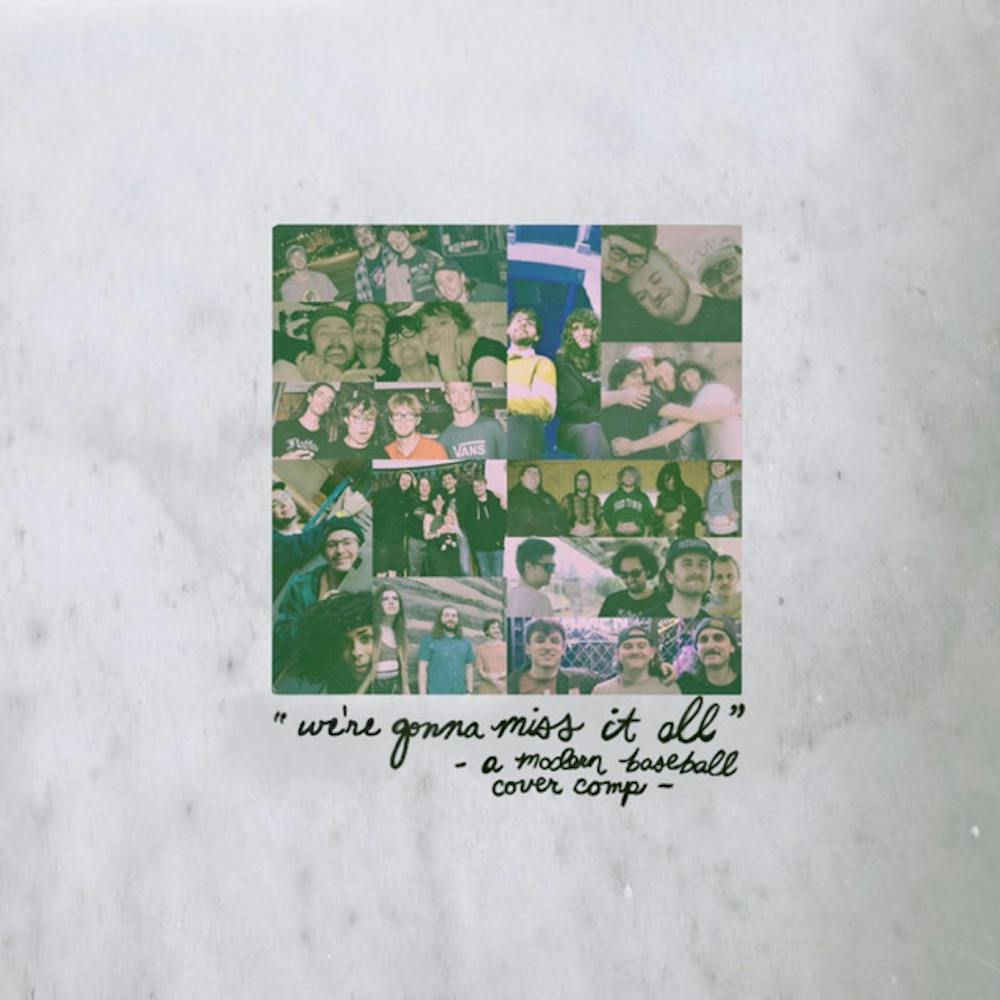“You’re Gonna Miss it All” was released 10 years ago this past February. Modern Baseball’s (a.k.a. MoBo) sophomore album solidified their placement in the canon of indie rock and Midwest emo-revival. Despite this lack of genre clarity, MoBo has had a profound impact on their self-identified successors over the past decade. 12 emo bands teamed up Sept. 13 to create a cover album of MoBo’s “You’re Gonna Miss it All,” aptly titled “We’re Gonna Miss it All.”
Anyone familiar with indie rock is aware of the leading figures of the genre and their mythological, enigmatic characteristics. They either become lifelong tourers like Isaac Brock (Modest Mouse) and J Mascis (Dinosaur Jr.) or abruptly disappear with little fanfare, to be constantly reconfigured and idealized in the minds of their fans, like Jeff Mangum (Neutral Milk Hotel) and David Berman (Silver Jews). Modern Baseball went on a sudden, indefinite hiatus in 2017, causings lead singer Bren Lukens to join the second group of indie rock icons. Bren’s co-lead singer, Jake Ewald, appears destined to be the opposite, continuing to produce music under the band “Slaughter Beach, Dog.”
“We’re Gonna Miss it All” functions as a love letter to a genre that no longer exists — or never did — and to a band that came to define the time, feeling and soul of a subsection of rustbelt musicians with poor, whiny vocals, tender emotions and plucky guitars. The only issue is, emo is already obsessed with self reflection and reference, as is obvious from the band names of several artists on “We’re Gonna Miss it All”: “Swiss Army Wife,” “FinalBossFight!," "Hey, Ily.” “We’re Gonna Miss it All” is a synecdoche of the Flanderization of an entire genre.
While listening to Bren on “Fine, Great,” one can believe them (or at least believe that they believe) when they say “I hate having to think about the future / When all I wanna do is worry about everyone but me.” When “The Casper Fight Scene” covers it on “We’re Gonna Miss it All,” it lacks the emotion and nuance of Bren’s vocals. What was once an unselfaware expression of something genuine yet corny is now a hyper-aware reference to the past. It’s almost like the current generation of emo bands understand the aesthetics of MoBo, American Football, Mom Jeans and Marietta but not the heart.
It’s easy to resonate with the openness of the sound of a revival emo song, but it either takes a knowing understanding of their intentions or a removal of any self-scrutiny to perform the sound in the same manner. “Old Gospel Choir” could have been a standout of “You’re Gonna Miss it All;” instead, it became a forgettable exercise in screamo – a caricature of the emotions previously expressed. In an attempt to match the intensity of how the song presumably made the cover artist feel, they decide to amplify the auditory characteristics rather than match the sincerity.
There is a level of unawareness of others and lack of self reflection required to both listen to and create music that sounds like Modern Baseball. It’s the pineapples on pizza of music – better to just keep your preference to yourself. Any of the modern manifestations of this genre, sound or sentiment lack this internal shame and external sincerity. This leads to a sound that is closer to the meme of Midwest Emo than what was expressed by people in college dorms and suburban home basements 15 or 30 years ago. The burgeoning of the genre was defined by a new formulation of music that sought to express in ways previously outside of the musical Overton window. Now that it isn’t subversive or new, any self-reference falls flat if it doesn’t build on what came before. At least we’ll always have “Sports.”
Get The Chronicle straight to your inbox
Sign up for our weekly newsletter. Cancel at any time.
Kadin Purath is a Trinity junior and a culture editor for Recess.

